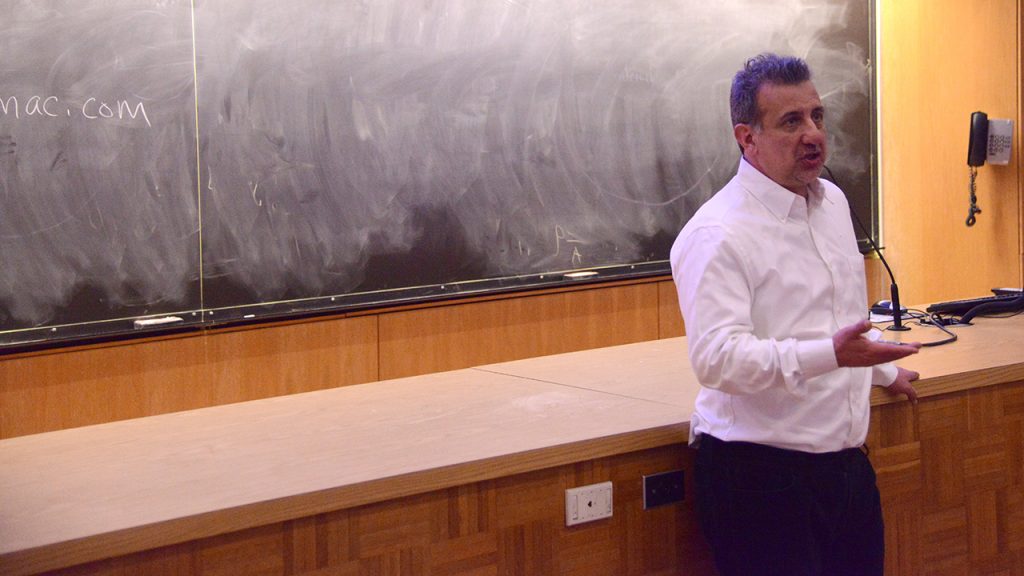“Let’s not forget that it’s a 70-year-old imprecise technology for mass murder,” Mark Romero said of the world’s aging stockpile of nuclear weapons.
Romero is a producer of The Man Who Saved the World, a soon-to-be-released film that tells the story of Soviet Lt. Colonel Stanislav Petrov who singlehandedly averted a nuclear war in 1983 by deciding to follow his conscience over protocol.
The film was shown on Feb. 3 at Fordham’s Rose Hill campus on as part of a national screening day in which more than 30 colleges and universities participated, said Michael Peppard, Ph.D., assistant professor of theology.
The producers organized the event to raise consciousness on an issue that seems to have been moved to the backburner in favor of environmental concerns, such as global warming.
“The reason we are here is to get young people to manage the existing arsenal,” said Romero. He said that while some believe that maintaining weapons for defensive purposes is a flawed argument, almost everyone agrees that aging and unsecure nukes should be destroyed.
“We should at least get rid of the chance of an accidental Armageddon,” he said.
The film, a documentary interspersed with narrative flashbacks, revisits the 1983 downing of the Korean Airline Flight 007 by Soviet fighter jets. The incident escalated already tense relations between the United States and Soviet Russia.
Four weeks later, Petrov was the commanding officer at a nuclear warning system when computers incorrectly detected five incoming missiles launched from California. Despite intense pressure and military protocol to retaliate, Petrov correctly deduced a technological error and refused.
Despite Petrov’s hero status, the film takes an unflinching “warts and all” approach to his cantankerous demeanor. While the film’s translator, Galina Kalinina, was initially repulsed by her assignment translating for the crotchety old Petrov, she was gradually won over when she began to realize who he is.
As such, Kalinina incites Petrove to face the demons of his past, providing the film with its narrative arc.
The result is a dramatic documentary that further humanizes the film’s hero and graphically illustrates what’s at stake should nuclear weapons fall into hands less capable than Petrov’s.
“This is flawed man who saved the world,” said Romero. “We made a very conscious decision to humanize the issue by humanizing the characters.”

